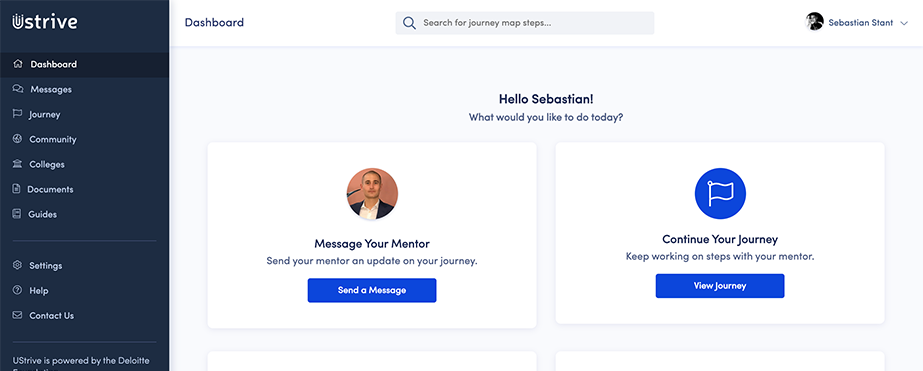Goal
Learn About Federal Work Study
Understand everything you need to know about federal work-study while in college.
If you’ve filled out your FAFSA, you will be notified if you’re eligible for work-study.
Overview of Federal Work-Study
Federal Work-Study provides part-time jobs for undergraduate students with financial need, allowing them to earn money to help pay education expenses, such as books, supplies, and personal expenses. The program encourages community service work and work related to the student’s course of study.
In order to be considered, you must fill out the FAFSA.
It provides part-time employment while you are enrolled in school.
It’s available to undergraduate students with financial need.
It’s available to full-time or part-time students.
It’s administered by schools participating in the Federal Work-Study Program. You can check with your school's financial aid office to find out if your school participates.
How does it work?
Your eligibility for work-study will be determined when you receive your financial aid letter by filling out the FAFSA. The college will award you with work-study as a part of your financial aid package. Once you start school, you can find your work-study job through job banks, or postings by the financial aid or college employment offices.
Why Choose a Work-Study Job Over Regular Employment?
If you remember in the FAFSA lesson, you’ll need to fill out a new FAFSA for each year you plan to be a student.This means that if your family income changes from year to year, the amount of money that you can and will receive may change as well. If you work a regular job, the government will reduce your financial aid eligibility by 50 percent of your earnings over $6,570. Earning $8,000, for example, would reduce your aid eligibility by $715. Income from a work-study job does not reduce your financial aid eligibility. Additionally, with work-study, employers are required to consider your class schedule when assigning work hours, whereas regular employers are not.
What kinds of jobs are there?
There are on-campus and off-campus jobs. The Federal Work-Study Program emphasizes employment in civic education and work related to your course of study whenever possible. However, other jobs typically available on-campus include working in the library or bookstore, serving in the dining hall, and assisting with college events.
Off-campus work-study usually benefits the public in some way and relates to your course of study, when possible. Your employer will usually be a private nonprofit organization or a public agency. Some schools might have agreements with private for-profit employers, as well.
No matter what kind of job you get, be realistic when working out your schedule and allow yourself time not only for study but also for recreational and leisure activities. It’s all about balance.
How much can I earn?
You’ll earn at least the current federal minimum wage. However, you may earn more depending on the type of work you do and the skills required for the position.
Your total work-study award depends on:
When you apply - apply for the FAFSA early!
Your level of financial need
Your school’s funding level
How will I be paid?
You’ll be paid hourly
You’ll be paid the federal minimum wage, at minimum
Your school must pay you at least once a month
Your school must pay you directly unless you request that the school send your payments directly to your bank account or use the money to pay for your education-related institutional charges such as tuition, fees, and room and board
Can I work as many hours as I want?
No. The amount you earn can’t exceed your total Federal Work-Study award. When assigning work hours, your employer or your school’s financial aid office will consider your class schedule and your academic progress.
type: embedded-entry-inline id: WLRtibXjYhUjY1MCr7pN1
Want to learn more?
A mentor can help with this topic & many more. Join thousands of students & pick a mentor today!
It's 100% free, forever.

© UStrive 2022, All Rights Reserved


